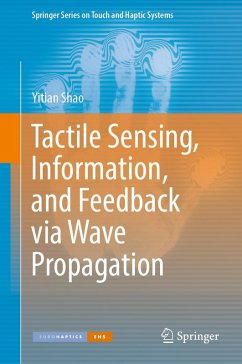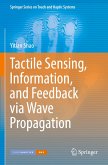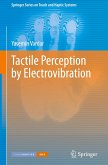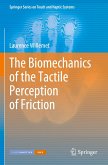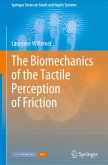A longstanding goal of haptic engineering is to develop haptic interfaces that can provide realistic sensations of touch. A fundamental step towards this goal is to understand what mechanical tactile signals the hand feels during daily touch interactions. This book reveals the complex patterns of mechanical waves propagating throughout the hand that can be elicited even by simple touch interactions, which helps in expanding existing knowledge of tactile function beyond the region of near skin-object contact and inspires new designs for haptic sensing and feedback technologies.
The first part of this book describes new methods for capturing dynamic, spatially distributed tactile signals in the whole hand during natural hand interactions. The second part characterizes these signals and evaluates how well and how efficiently they encode the information of touch, relating to the transmission of mechanical waves in hand tissues. The final part demonstrates how these findingscan be utilized to create novel haptic effects and tactile displays.
Tactile Sensing, Information, and Feedback via Wave Propagation provides a unique view of tactile sensing and feedback and will appeal to researchers, engineers, and students who are interested in learning cutting-edge haptic science and technology.
The first part of this book describes new methods for capturing dynamic, spatially distributed tactile signals in the whole hand during natural hand interactions. The second part characterizes these signals and evaluates how well and how efficiently they encode the information of touch, relating to the transmission of mechanical waves in hand tissues. The final part demonstrates how these findingscan be utilized to create novel haptic effects and tactile displays.
Tactile Sensing, Information, and Feedback via Wave Propagation provides a unique view of tactile sensing and feedback and will appeal to researchers, engineers, and students who are interested in learning cutting-edge haptic science and technology.

